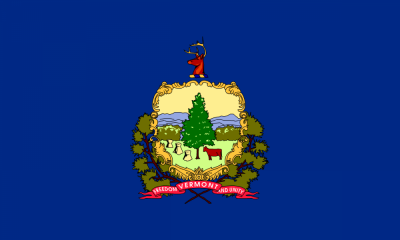Vermont

Vermont recognizes a right to prevent the appropriation of one’s name or likeness under a common law privacy-based action. There has been very little case law in the state that has raised the issue.
Statute
NO.
In 2015, however, Vermont passed a law that makes it a crime and provides a private right of action when a person knowingly circulates sexually explicit images without permisison and with an intent to cause harm. 13 V.S.A. Section 2606. The provision was held constitutional in 2019 against a First Amendment challenge. State v. VanBuren, 214 A.3d 791 (Vt. 2019).
Common Law - Right of Publicity
NO
No court has recognized a right of publicity under Vermont law, but the state supreme court has indicated that there may be a separate cause of action, called a right of publicity, when a plaintiff is famous and has a name or likeness with commercial value.
Staruski v. Continental Telephone Co. of Vermont, 581 A.2d 266 (Vt. 1990)
Common Law - Right of Privacy-Appropriation Tort
YES
Vermont recognizes a right to privacy, and the appropriation branch of the tort. To make a claim, a plaintiff must establish harm and a benefit to the defendant from the use of the plaintiff’s identity.
Staruski v. Continental Telephone Co. of Vermont, 581 A.2d 266 (Vt. 1990)
Post-Mortem Right
No case to date has recognized a post-mortem right.
Limits on Right
Does the law require the plaintiff or identity-holder to be a celebrity or have a commercially valuable identity?
NO
Staruski v. Continental Telephone Co. of Vermont, 581 A.2d 266 (Vt. 1990)
Does the law protect persona?
No court to date has considered this question.
Is Liability Limited to Uses on Commercial Advertising or Commercial Speech?
UNCLEAR
The Vermont Supreme Court has suggested that there can be liability when there is a use for any “advantage” by the defendant, but also has indicated that it is an open question whether there can be liability in the context of a noncommercial use.
Although the Vermont Supreme Court in Staruski limited its holding to uses for “commercial purposes,” it did not define that term as limited to commercial speech or advertising.”
Staruski v. Continental Telephone Co. of Vermont, 581 A.2d 266 (Vt. 1990)
First Amendment Analysis
To date no Vermont court has considered a unique test for balancing First Amendment and right of publicity interests. However, Vermont sits in the Second Circuit Court of Appeals, which considered a First Amendment defense to a right of publicity claim under Oregon law and concluded that, at least in the context of expressive works, uses of others’ names were permissible unless the use is “wholly unrelated” or “simply a disguised commercial advertisement for the sale of goods or services.”
Rogers v. Grimaldi, 875 F.2d 994, 1004 (2d Cir. 1989).
